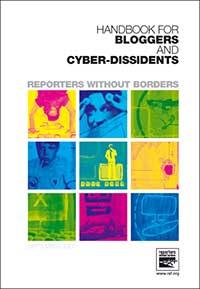The policy of 'constructive engagement' is a smoke screen for taking money from a morally repugnant regime. It is against the wishes of the democratically elected leader Aung San Suu Kyi and sends the wrong signal...
Myanmar's military rulers [who] are still holding more than 1,100 political prisoners despite last July's release of 249 such detainees, a U.N. human rights investigator reported on Wednesday.
Monks, lawyers, teachers, journalists, farmers, politicians, student leaders, writers and poets are among those the reclusive Southeast Asian nation is detaining on political grounds, special rapporteur Paulo Sergio Pinheiro of Brazil said in a report to the 191-nation U.N. General Assembly.
Myanmar has 1,100 political prisoners -UN expert
"If we don't take their money someone else will."
Prominent pro-democracy leader and Nobel Peace Prize winner, Aung San Suu Kyi, has had various restrictions placed on her activities since the late 1980s. In 1990 her party won a landslide victory in Burma's first multi-party elections for 30 years, but has never been allowed to govern.
Military-run enterprises control key industries, and corruption and severe mismanagement are the hallmarks of a black-market-riven economy.
The armed forces - and former rebels co-opted by the government - have been accused of large-scale trafficking in heroin, of which Burma is a major exporter. Prostitution and Aids are major problems.
The above is quoted from the BBC.
Nobel Peace Prize winner Aung San Suu Kyi, daughter of the assassinated independence leader Aung San, spent 6 years under house arrest [actually she is again under house arrest]. In 1990, her party, the National League for Democracy, won 82 percent of the parliamentary seats. The generals, shocked by an election result they never expected, threw 200 of the newly-elected MPs into prison. Suu Kyi's party has never been allowed to take elected office.
She warns that, far from liberalizing life in Burma, foreign investment and tourism can further entrench the military regime.
http://www.bullfrogfilms.com/catalog/inb.html
Seminar to invest in Burma
Mizzima News (www.mizzima.com)
September 28, 2005
A seminar aim to promote investment in Burma held today in Singapore.
The speaker Mr. Serge Pun, Chairman of the SPA Group, operating with banking, real estate, manufacturing to services and running with over 3500 employees in Burma has scheduled to speech on the seminar entitled “ Business & Investment Opportunities Seminar- Myanmar” at Bungis junction Office Tower.
The changing of Burma’s economy and business environment situations, the Singaporean businessmen will have new chances and hope for the business field in the oil and gas, trading and services sectors, stated in the invitation letter.
Singapore is one of the top foreign investor in Burma. In 2004, Burma and Singapore reached with bilateral trade amounting to S$1.2 billion.
While US and the West impose sanction on Burma, foreign investment rise up more than 34 percent in 2004, said a report from Ministry of National Planning and Development in its annual report.
But, some critics say facts and figures released by the authority are unreliable.
Related Articles:
Singapore's Blood Money
Horrific account of Burma's suppression
Human Rights
